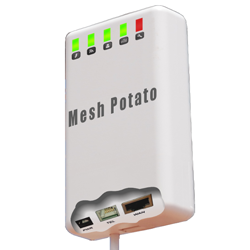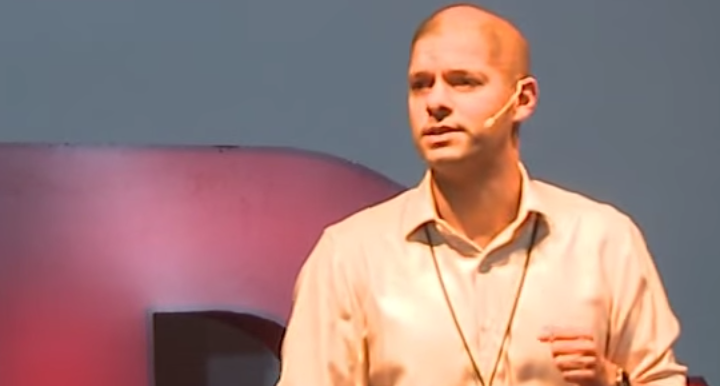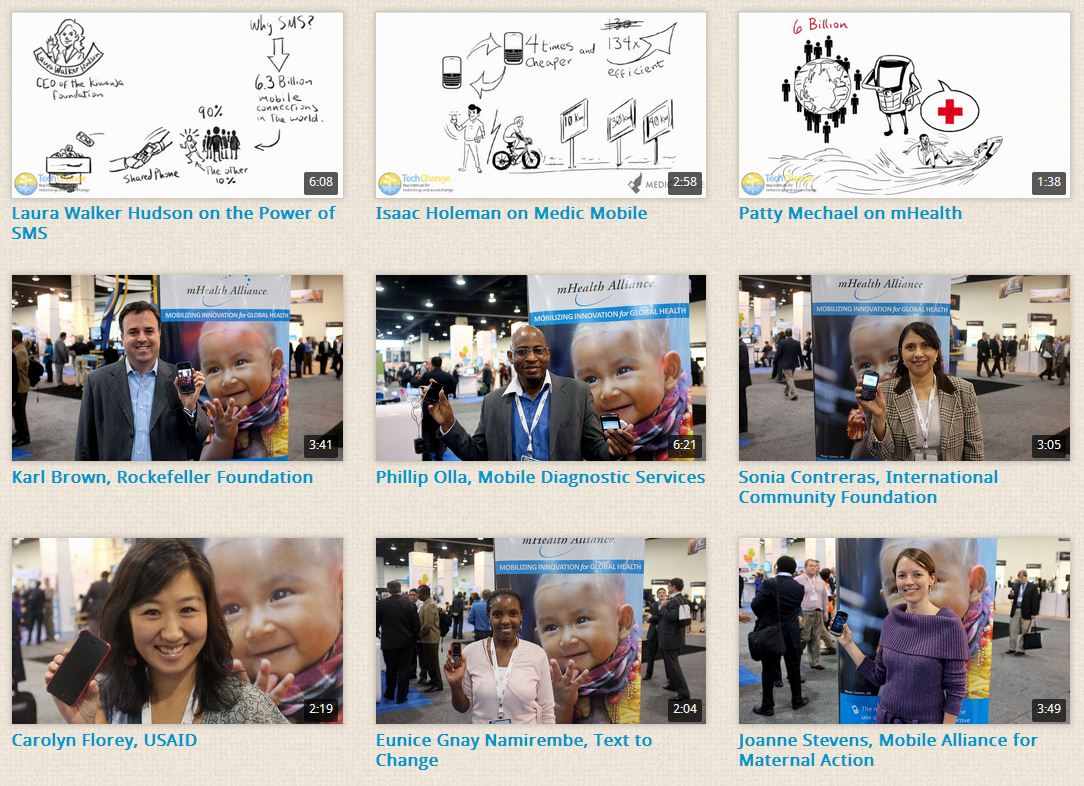Cross-posted from The Stanford Social Innovation Review by Roshan Paul and Alexa Clay
This is the first in a series of interviews where we speak with leading innovators who are appropriating lessons from open source thinking—once purely the domain of the software engineer—for social change.
We first met Stephen Song through the Ashoka Globalizer program, where he helped us develop our framework for thinking about how to scale social innovation through an open source approach. Stephen is the founder of Village Telco, a social enterprise that aims to make starting a telephone company as easy as starting a blog.
Roshan Paul and Alexa Clay: How did the low-cost phone and Internet device Mesh Potato—the flagship project of Village Telco—come about?
Stephen Song: I had been doing advocacy for a while on the issue of the cost of access to communication in Africa. The biggest barrier is the lack of competition. Most countries have very few telecommunications operators, and they tend to operate with a fairly cozy relationship. Prices remain high. However, people with lower income levels in Africa spend as much as 50 percent of their disposable income on telecommunications—so there is a clear market for communication, and a huge need to make it cheaper and better.
On the other hand, I was aware that there were small chunks of the spectrum that were freely available for use; what is popularly known as Wi-Fi spectrum. You now find Wi-Fi devices in virtually everything—somebody told me the other day that they bought a bathroom scale with Wi-Fi. Moreover, all over the world, people are building meshed Wi-Fi networks to build their own Internet infrastructure. In Africa, however, you get much higher value if you can deliver voice and Internet services, instead of just internet.
All of these trends and forces taken together made us realize that that you can use inexpensive Wi-Fi gear to build rural telephone networks. That was what led to Mesh Potato.
Read more about the Mesh Potato project. 
Why did you choose to use open source for this idea? Why not set up your own cozy, lucrative partnership with one firm, and capture the market?
What open source allows for is a fast-track toward trust. We approached a manufacturer with the design and said we would give it to them for free, on the understanding that they gave away the design for free—no patents—but that they could use it wherever and however they wanted. So there were no tricks. Everything was on the table: They got a free product, we got a deal to build the system, and we very quickly had a working relationship built on trust.
People like to contribute their ideas and energy if they know someone else isn’t going to profit from it. We benefit from an international network of over 500 people from all around the world, who help and contribute in different ways: developing the software, de-bugging it, spreading the word, testing, etc. Besides, nobody likes the big, incumbent communication companies—so we also benefited by being the little guy up against the Goliaths.
How did you turn your community into co-creators, an essential element of any open source approach?
First, when they join the community, they become the front-line for each other in terms of solving problems—how to deploy, troubleshoot, etc. The community helps to solve the problem, so they are in fact part of the technical support team. Second, they help with developing new market directions. For instance, one person wanted the technology to focus more on small businesses. So he customized the product accordingly and then shared it back with the community. Now, 30 percent of the community is actually using his product rather than the original. Thus, the community drives the technology’s growth strategically; they shape the choices we make in terms of enhancing the technology.
How much progress have you made? And what’s next?
We have sold 1,000 units so far in developing countries around the world. But we haven’t yet hit the price point we want. We’re now working on the second generation of the Mesh Potato.
We started out launching the Mesh Potato for everyone because it has so many different applications—from disaster relief to a community-wide telephone to a cyber café that wants to extend services for local businesses. So we’re presently doing further market definitions and then tailoring the technology for those markets.
How do you think this kind of open-source philosophy can apply to other sectors of social enterprise work, perhaps even non-technology applications? How could you use open-source to help protect a rainforest, for example?
When most people think about sustainability, they think “How can I make money for this? How can I generate revenue?” That’s reductionist. Sometimes you have to just give stuff away. A recent mapping project I did for free led to an invitation from Google to build a much larger map. This, in turn, introduced me to many new communities of value. If you put stuff out there and deliver value to others, it comes back to you.
Furthermore, if people feel they already get value from you, then they have less concern about entering into a business relationship with you. They trust you more. For example, in Tunis, if you go into one of their famous carpet shops, the first thing they do is offer you tea. Once you accept the tea, there is an implied transaction. You feel this obligation to give something back, but you also trust them more because they’ve given you something nice for free.
So if I were monitoring a rainforest, I’d ask, “What knowledge or resources can I offer people that would increase their engagement with me?” There may be an open source application on your phone that pulls information from the environmental database, and tells you about at-risk environments or provides general information about the forest that has been crowd-sourced from experts and local people.
Granted, the return of that value can be slow. With all open source products, the vast majority of people use it without giving anything tangible back. But that isn’t necessarily a bad thing, because they are actually carriers of goodwill for you. Don’t forget that your network has value, and that open source is a great tool for building that community of support. So think about what you can give away, what will have value to your audience, who can in return provide value to you.
Roshan Paul is on the TechChange Advisory Board and is the Senior Change Manager at Ashoka.
If you are interested in learning more about how mobile phones can make a social and economic impact in the developing world, consider taking our three week online certificate course, Mobiles for International Development: New Platforms for Public Health, Finance, and Education.



